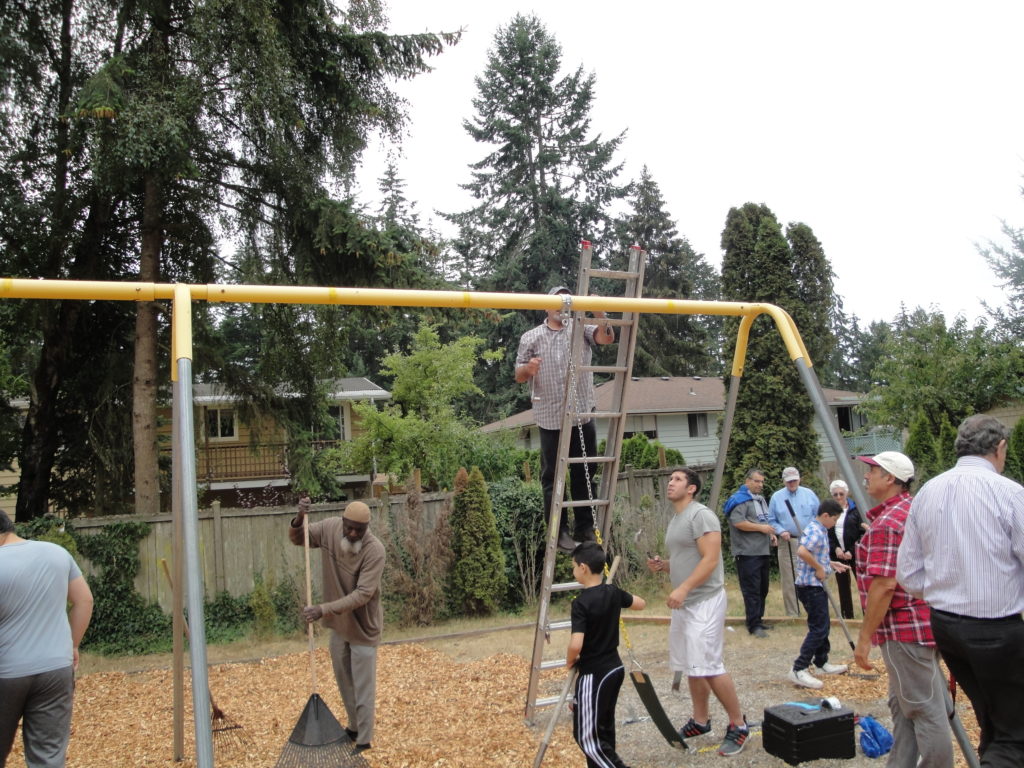
My dad was the custodian of the school when I grew up. We didn’t have much money for recreation but we had keys to the gym. I practiced skills for about an hour a day starting at age six. Years later when I was in high school I sat in the living room with my dad after a hard loss. He pointed out that our skills or our motivation were not the problem. It was our strategy. I spoke to the coach the next day and he agreed. We played that same team a few weeks later and we won.
A new strategy led to a different outcome.
We all know that the basic trust in our institutions and in each other has declined to a critical level. The Pew Research Center’s research shows that the ideological gap between Americans is extremely high. While this difference exists in every neighborhood – and every family – it is especially powerful between rural/town/smaller city and more urban and suburban areas.
Further, these differences are being leveraged by hate groups, media outlets, and politicians to say that those who disagree are less than human. This leads to the reality that 4% of Americans believe that violence against political opponents or the government itself is justified to save the country.
But our differences are being exaggerated. We are not seeing each other as we are. Most Americans share certain values:
- Individual freedoms such as freedom of speech
- Every citizen should be able to vote
- Accepting people of diverse racial and religious backgrounds
- Respecting American political institutions and laws
Gathering people to talk is not the answer, at least not by itself. Talk is cheap. Information alone is not enough.
When people of diverse cultures and wisdom traditions meet face-to-face, work for the common good, and show up in public with each other it builds trust. Our actions are more powerful than words, more powerful than a blog post, a podcast, a meme.
But having a strategy doesn’t just mean that we decide what to do. We also need to be strategic about where to do it.
Most interfaith work happens in larger cities and suburbs.That is great but it is not enough. The impact of this work is often muted because of the low percentage of urban people participating in communities of wisdom. In rural areas, towns, and smaller cities there are higher rates of participation. This means that active interfaith work has a bigger impact in these settings. But given the history of our nation and tendencies of human nature, people in these settings may need some preparation in order to begin this work. They will need to recognize that such work is a core value of their own tradition. To relate to and work with others, for instance, is for Christians a part of being faithful to Jesus. (More on this next week!)
In Let’s Go Together, PTU seeks to prepare and support people in rural and exurban areas, and small cities and towns, to gather neighbors of all wisdom traditions to
- Eat, play, and share stories together
- To work for the common good together
- To show up in public together
We believe in the power of local, wide-spread, face-to-face relationships, work for the common good, and public solidarity. When people see first-hand and participate in building their community together, trust begins to grow. As these people share their experience, it spreads like a healing salve in the community.
We can be different and work for our common good.
We can recognize each other as human again.
We can build a future together.
Doing so will deepen our connection to our own wisdom tradition and values.
We in the interfaith/multifaith/interreligious world have been working hard. We have the skills and the motivation to bring people together and to address the loss of social trust. But I see now that we also need to be strategic if we are going to make a big impact. We need go beyond dialogue into action. We need a simple, replicable strategy that can be part of people’s everyday activities in their community. And we need to move beyond urban areas.
Those of us in more rural areas and small cities know how to put a potluck together. We know how to do service projects. We know how to make t-shirts and show up to a parade. And we know it’s fun and life-giving to do!
I believe this strategy can contribute to a better outcome for our nation and our world.
We invite you to partner with us. Your donation will help us develop this strategy. Your community of wisdom’s participation will set an example for others.
